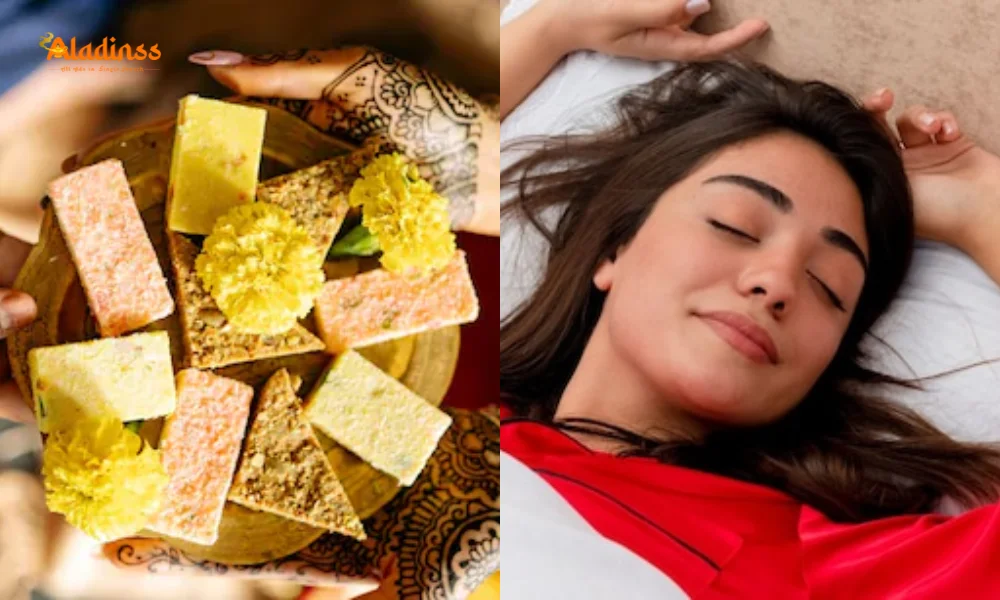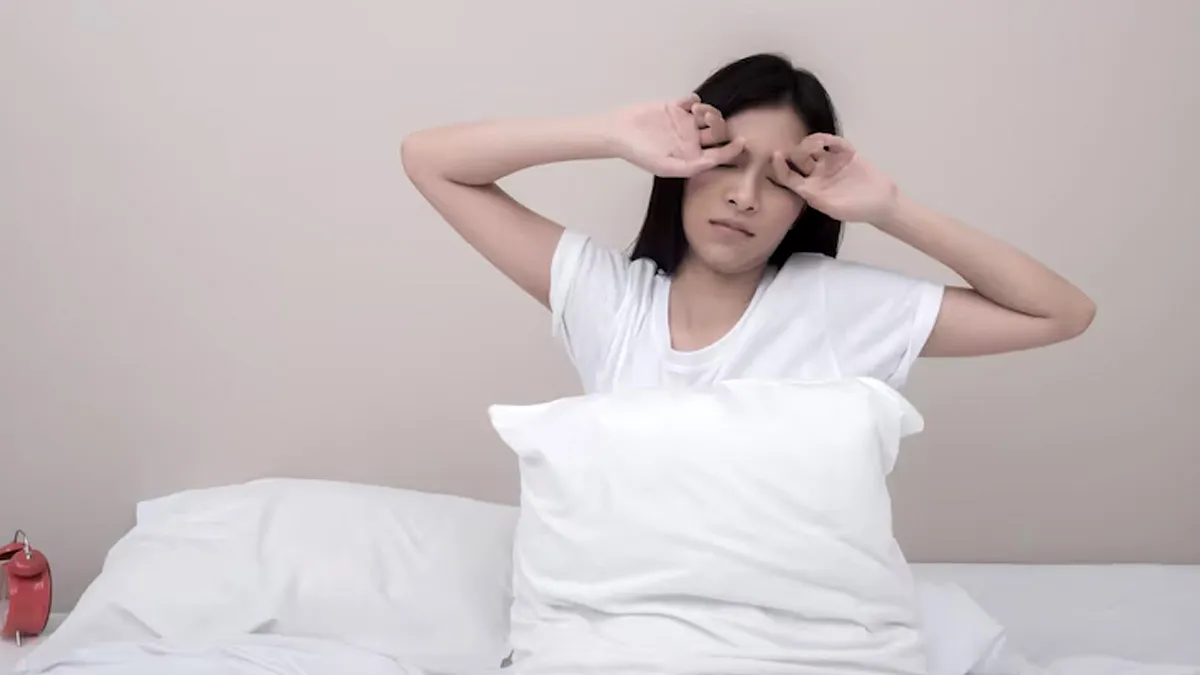Stop Aging Fast After Diwali: Manage Sugar, Stress, and Sleep for Youthful Health

Post-Diwali Aging: How Sugar, Stress, and Sleep Steal Your Youth
Diwali brings joy, lights, and indulgent sweets, but the post-festive haze of sugar highs, stress, and sleepless nights can take a toll on your body. Beyond the temporary fatigue, this trio-sugar, stress, and sleep disruption-can accelerate aging at a cellular level, dimming your vitality. Dr. Arpit Bansal, a renowned Laparoscopic Cancer Surgeon and Gut & Longevity Specialist, explains how these factors silently age you and shares practical ways to reverse the damage for a healthier, more youthful you.
The post-Diwali period often leaves us juggling work catch-ups, lingering cravings, and disrupted routines. These challenges don’t just affect your energy-they impact your skin, metabolism, and overall well-being. By understanding the science behind accelerated aging and adopting simple strategies, you can restore balance and protect your health long after the festivities end.
The Sugar Trap: How Sweets Speed Up Aging
Diwali sweets like laddoos and barfis are irresistible, but their high sugar content can wreak havoc on your body. Excess glucose triggers a process called glycation, where sugar molecules bind to proteins and DNA, forming Advanced Glycation End-Products (AGEs). “AGEs harden collagen, cause tissue inflammation, and rob your skin of its natural glow,” says Dr. Bansal. Over time, this process accelerates aging, leading to wrinkles, sagging skin, and even internal damage to organs.
The good news? You don’t need to skip sweets entirely. Dr. Bansal suggests balancing sugary treats with fiber-rich foods like salads or fruits to slow glucose absorption. Staying hydrated and engaging in light physical activity, such as a post-meal walk, can also help your body process sugar more efficiently, reducing the formation of AGEs and protecting your youthful vitality.

Stress: The Silent Aggravator of Aging
Post-Diwali stress often stems from returning to work, managing family obligations, or catching up on neglected tasks. This stress elevates cortisol levels, a hormone that, when chronically high, accelerates aging. “Cortisol drains your mitochondria-the powerhouses of your cells-weakens your immune system, and fuels cravings for sugary or fatty foods,” explains Dr. Bansal. This creates a vicious cycle, as sugar spikes further increase cortisol, perpetuating the aging process.
To break this cycle, Dr. Bansal recommends simple stress-reduction techniques. Slow breathing exercises, gratitude journaling, or spending time in a calming environment-like near water or in nature-can activate the parasympathetic nervous system. This “rest and digest” state lowers cortisol, reduces cravings, and helps restore your body’s natural rhythm, protecting you from stress-related aging.
Sleep Disruption: Robbing Your Body’s Repair System
Late-night Diwali celebrations, coupled with exposure to bright screens, can throw your sleep schedule into disarray. This “social jet lag” disrupts your circadian rhythm, the internal clock that regulates hormones like melatonin and growth hormone. “Sleep is your body’s nightly repair lab,” says Dr. Bansal. “It detoxifies cells, repairs DNA, and reduces inflammation. Missing even a couple of nights of quality sleep can accelerate aging.”
Poor sleep also affects cognitive function, mood, and metabolism, making it harder to resist post-festive cravings. Just two nights of restorative sleep-ideally 7–9 hours in a dark, quiet environment-can boost melatonin production, reduce inflammation, and enhance focus. To improve sleep quality, limit screen time before bed, avoid caffeine late in the day, and establish a calming pre-sleep routine.
The Science Behind the Aging Trio
The interplay of sugar, stress, and sleep disruption creates a perfect storm for accelerated aging. Glycation from sugar damages collagen and tissues, while cortisol from stress weakens cellular energy and immunity. Sleep deprivation compounds these effects by disrupting hormonal balance and impairing the body’s ability to repair itself. Together, these factors lead to visible signs of aging-dull skin, fatigue, and weight gain-as well as internal damage that affects long-term health.
Research shows that chronic sugar consumption increases oxidative stress, which damages cells and accelerates aging. Similarly, elevated cortisol levels over time can lead to telomere shortening-a key marker of cellular aging. Sleep disruption further exacerbates these issues by reducing the body’s ability to produce antioxidants and repair DNA damage. Addressing this trio holistically is essential for maintaining youthful vitality and overall well-being.
Practical Steps to Reverse Post-Diwali Aging
Recovering from post-Diwali burnout requires a balanced approach that addresses sugar, stress, and sleep. Dr. Bansal shares actionable tips to help you restore your body’s rhythm and slow the aging process:
- Balance Your Diet: Pair sweets with fiber-rich foods like vegetables or whole grains to stabilize blood sugar. Stay hydrated to support glucose metabolism.
- Reduce Stress: Practice slow breathing, meditation, or spend time in nature to lower cortisol and calm your mind.
- Prioritize Sleep: Aim for 7–9 hours of quality sleep in a dark, quiet environment. Avoid screens at least an hour before bed.
- Move Your Body: Engage in light exercise, like walking or yoga, to clear sugar spikes and reduce stress.
- Practice Gratitude: Journaling or reflecting on positive moments can shift your mindset and reduce stress-related cravings.
“The key to reversing post-Diwali aging lies in restoring rhythm,” says Dr. Bansal. “By balancing food, rest, and thought, you can protect your body from premature aging and feel vibrant year-round.”
The Role of Lifestyle in Longevity
Beyond the post-Diwali period, adopting a longevity-focused lifestyle can help you combat the effects of sugar, stress, and sleep disruption year-round. A diet rich in whole foods-fruits, vegetables, lean proteins, and healthy fats-supports cellular health and reduces glycation. Regular physical activity, even moderate exercise like walking, enhances mitochondrial function and reduces oxidative stress.
Stress management techniques, such as mindfulness or yoga, can keep cortisol levels in check, while a consistent sleep schedule supports hormonal balance and DNA repair. By making these practices part of your daily routine, you can protect your body from accelerated aging and maintain a youthful glow.
The Future of Anti-Aging Strategies
As science advances, researchers are exploring new ways to combat the effects of sugar, stress, and sleep disruption on aging. Emerging therapies, such as personalized nutrition plans and biohacking techniques, aim to optimize cellular health and slow aging at the molecular level. By combining these innovations with lifestyle changes, individuals can take proactive steps to maintain their youthful vitality and thrive in the modern world.
“Aging is inevitable, but accelerated aging doesn’t have to be,” says Dr. Bansal. “By addressing the hidden trio of sugar, stress, and sleep, you can reclaim your energy, protect your health, and shine brighter than ever, even after the Diwali lights fade.”
Comment / Reply From
No comments yet. Be the first to comment!






